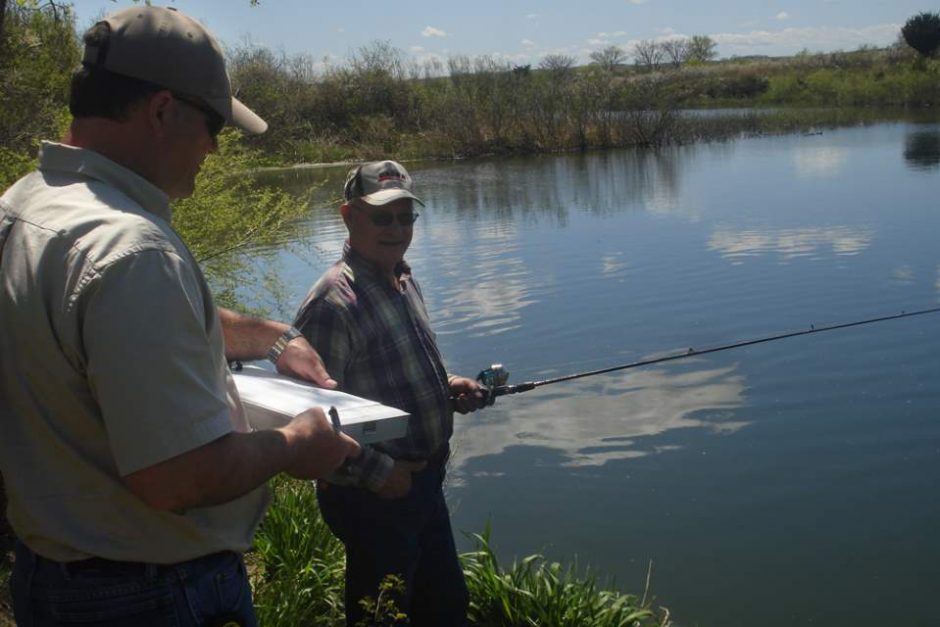Online Fishing Forums Can Help Fishery Managers Track Fishing Effort
 Fisheries managers generally learn about angler effort from time-consuming interviews. (Credit: Tony Barada)
Fisheries managers generally learn about angler effort from time-consuming interviews. (Credit: Tony Barada)Fishery management requires a multi-faceted approach to resource management—simultaneously gathering data throughout reservoirs by monitoring water quality, species distributions, and recreational needs of the community supporting the fishery. Of course, the greatest sponsors of these fisheries are the anglers that frequent its waters. By extension, understanding the needs and behaviors of anglers can help inform resource managers where to direct policies and initiatives. Knowing how important this information is, managers may still struggle to identify active anglers and assess fishing efforts.
Fishing effort refers to the amount of fishing in a given area, which is a vital factor when determining stocking and seasonal regulations. Normally, measuring fishing effort means hanging around the lake and interviewing anglers or relying on creel surveys; however, a new study suggests that acquiring that information could be as simple as browsing online fishing forums.
Studying Angler Behavior
Lead author Dustin Martin, a postdoctoral research assistant at the University of Nebraska, said that the study grew naturally out of an earlier project.
“As I was doing my PhD work studying angler behavior… I started noticing some trends where someone would report a large catch of a really big fish on this online social network,” Martin said. Whenever someone boasted of a great catch, he explained, fishing activity in the specified region seemed to increase for about a month, then die down to normal levels.
Martin quantified his hunch by comparing activity on the Nebraska Game and Fish Association forums with angler behavior information obtained from creel surveys at 19 reservoirs in southeastern Nebraska.
From 2009 to 2010, Martin and a team of researchers and creel volunteers cased the reservoirs in groups, counting and talking to fishermen about their catches and performance. The groups surveyed the reservoirs 12 times each month, randomly selecting from eight-hour shifts to ensure that morning, midday and evening anglers were fairly represented. Sure enough, the data revealed the correlation that Martin had suspected.
“The results show pretty clearly that as lakes are mentioned more within a month, and as there are more posts about lakes in the region, there’s more effort in lakes in that time period,” Martin said.
Conclusion
The discovery should be exciting for fishery managers, Martin said. Using forums and social networks could save fisheries and natural resource departments tens of thousands of dollars in information-gathering costs. Furthermore, the proposed method can be done remotely, a benefit that won’t go unappreciated by anyone who’s conducted a creel survey in the Nebraska winter, Martin said.
But perhaps the most exciting aspect of Martin’s proposed method is the amount of time it can save fishery managers. These forums effectively serve as an active survey that could grow in sample size as more anglers join.
“It has the potential to get real-time information about fishing efforts at lakes,” Martin said. “You can watch, you can see a post, you can see what’s actually happening, and then you have a much quicker opportunity to respond to it.”


Monte Northam
December 24, 2022 at 2:51 am
Fishery management could also help their own cause by publishing, in whatever forms necessary, which fisheries need what kinds of fishing. “We need more catfishermen in Lake “A”, “There are too many small bass in Lake “B”, etc. Most fishermen I know would help.